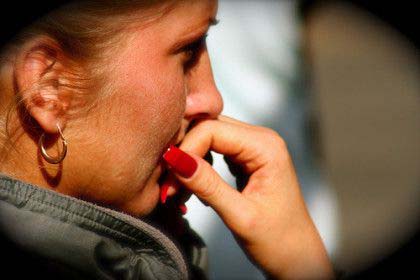Help for Anxiety Through Depth Psychotherapy 3: Worry

Relentless worry may well be the reason an individual seeks help for anxiety, and /a-midlife-transition may play a key role in the process.
The Unknown and Uncontrollable
One of the things that we have to accept is that a certain amount of anxiety is a perfectly normal part of life. We have to expect that we will have — and we need — some anxiety.
But not crippling anxiety. The famous therapist Rollo May differentiated between normal and unhealthy anxiety. The unhealthy type is disproportionate worry that results from consistent unwillingness to face the normal anxiety of life. Even if only unconsciously, we know that anxiety is there: there’s nothing in the outer world that we have that we could not lose. When we refuse to accept and tolerate anxiety as an inevitable part of life, we set ourselves up for pathological anxiety and out-of-control worrying.
[hs_form id=”17″]
Worry and Denial of Anxiety
Healthy anxiety is the kind that we can accept and deal with. We can do something about it, and the anxiety dissipates.
But if we cannot accept the presence of healthy anxiety in our lives, and of our true feelings, it intensifies, and we set ourselves up for out-of-control worrying. Toxic worry can bring chronic tension and fatigue, disturbed sleep, headaches, hyper-alertness, irritability, reduced ability to concentrate, bodily problems, panic attacks, or even psychiatric symptoms. It can make us quite sick and quite miserable. When it gets this intense, we definitely need help for anxiety.
Worry and Persona
Our inability to accept our normal anxiety often relates to our desire to be perceived by others in a certain way. We get heavily invested in being seen by the world in a particular way. We frantically guard what Jung called the persona — our image — often driven by fear that others will see us in a negative light. We worry, often unconsciously, that the world might show us up as other than our carefully constructed social mask.
Is it possible that we’re too invested in this outer image, for whatever reason, and too out of touch with our real identity?
Worry and the Unacknowledged Self
Worry takes us back to the question of our ability to be conscious of, and to accept ourselves and life.
When we divorce ourselves from the hypnotic image of the social self, the persona, can we really accept who’s there? Can we accept our real situation in life? Can we get free of the often crushing weight of internalized expectations and perfectionism?
Self awareness and self acceptance is central to therapeutic help for anxiety, and indeed for any approach to therapy that truly has transformative power for the individual’s life, as Rollo May tells us:
The capacity for self acceptance, and for accepting one’s life as it is, without illusion, is at the heart of reducing the level of anxiety in our lives. The journey of self-discovery that enables such acceptance is a key element in the kind of help for anxiety and worry provided by /a-midlife-transition.
What are the circumstances that create worry in your life?
{cta]
PHOTO:  Some rights reserved by jonrawlinson ; VIDEO: © case studies.net
Some rights reserved by jonrawlinson ; VIDEO: © case studies.net

